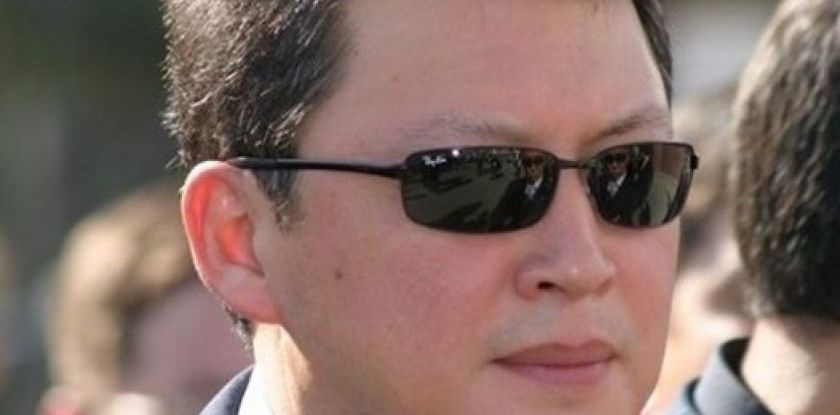The trial against former BTA Bank managers Ulukbek Maksatbekuuku and Elena Molchanova sentenced to 10 and 5 years, correspondingly, was held quietly, without the press and extra-witnesses. We believe it not to be a coincidence but the rational strategy of those who worked out and carried out this special operation.
Note that, out of the 14 initially accused, only two remained in the prisoner’s box:
- Ulukbek Maksatbekuulu accused of taking bribes (Article 176, Part 2, Section ‘b’, Article 311, Part 4, Section ‘v’), obstruction of justice and preliminary investigation (Article 339, Part 3 of the Kazakhstan Criminal Code as in force in 1997) and of taking bribes (Article 366, Part 3, Section 4 of the Kazakhstan Criminal Code);

- and Elena Molchanova accused of taking bribes (Article 176, Part 4, Section ‘b’ of the Kazakhstan Criminal Code).
The authorities’ leniency towards the rest of the accused results not so much from the fact that the latter (including former First Deputy Chairman of BTA BZhaksylyk Zharimbetov) had already been convicted and repented, therefore, asked the court to apply Article 65 (relief from criminal responsibility due to complete and voluntary abandonment of criminal purpose), Article 69 (relief from criminal responsibility due to expiry of periods of limitations), and Article 67 (relief from criminal responsibility due to reconciliation) of the Kazakhstan Criminal Code (as in force in 1997) as from their obvious unwillingness to attract attention to the trial.
They were successful: the journalists who visited the first hearing had then lost all their interest. And if, at the beginning of the trial, the Kazakhstan media and the internet-resources wrote something on it, later, the topic had completely vanished from the civic society’s eyesight. Consequently, the potentially resonant trial was held in the absence of the general public and resulted in the guilty verdict that cannot be called anything but strange.
The thing is that it was the mid-level managers who were had been to prison. Although they did have a hand in the estimations and the payment to the law firms that worked for BTA Bank in the legal and other trials against Mukhtar Ablyazov, they were still the figures of the secondary importance.
Moreover, Ulukbek Maksatbekuulu and Elena Molchanova had nothing to do with the signing of the contracts with the Russian legal subcontractors while the decisions on the payments had always been made collectively and were carried out with the top-management’s blessing.
For this reason, we believe that this trial was pursuing a completely different goal — to threaten some quite influential people. In our opinion, the primary addressee was Timur Kulibayev, the Head of the National Chamber of Entrepreneurs «Atameken» and the husband of Nursultan Nazarbayev’s second daughter.

It is not a secret that, after the state authorities entered BTA Bank on February 2, 2009, a big team of managers that represented the interests of several elite groups and acted in the name of the state started the «saving» operation. The key role in it, however, was played by Timur Kulibayev’s people, in particular, Arman Dunayev and Anvar Saydenov joined by Nikolay Varenko, Pavel Prosyankin, and others.
How this «saving» op ended is well-known. After nine years of anguish, two restructurings, the merger with/detachment from Kazkommertsbank, the sale of the toxic assets for 2.6 trillion tenge, the bank surrendered its license and now, under the leadership of Kenes Rakishev, is restoring the order in the remaining business-processes.
However, with the help of his people in the BTA Bank management, Timur Kulibayev had also become the co-owner of at least two large BTA business-projects in Russia and Kazakhstan that, for some reason, did not receive much attention and were not reclaimed during the numerous legal trials against Mukhtar Ablyazov in Kazakhstan, Russia, and the UK.
Many know about this in Kazakhstan and beyond including BTA Bank’s former top-management, the people who, at the time, were in charge of the Samruk-Kazyna National Welfare Fund, the Government, and the National Bank. No one, however, took the risk of bringing this up. Nowadays, it seems that the escalation of the elite conflicts has resulted in Timur Kulibayev’s Akorda opponents’ preparing a trum card against him that be used at the right moment.
Based on the insider information, during the preliminary investigation, they received the testimony of Nikolay Varenko and Pavel Prosyankin, the former BTA Bank top-managers who, after leaving the financial institute, had farsightedly fled Kazakhstan and now permanently reside in other countries.
If our assumption is right, then Timur Kulibayev’s political opponents have already obtained the means to accuse him (and quite reasonably so) of stealing a part of BTA property.
Note that it was exactly this scheme that Gulnara Karimova’s political opponents used to inflict a defeat upon her while her father President was still alive.
Hence, the recent TV-program of the Russian NTV channel featuring pop-diva Sati Kazanova and her confessing to having romantic relationships with Timur Kulibayev (albeit many years ago) should not be regarded as a coincidence or an attempt to make the money off of the scandalous topic but as a warning to Nazarbayev’s son-in-law that the past may come back and seize him by the throat.




